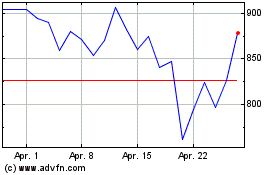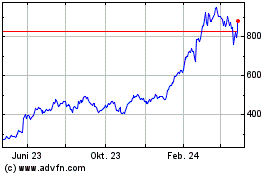NVIDIA AI Summit Japan—NVIDIA today announced a
series of collaborations with SoftBank Corp. designed to accelerate
Japan’s sovereign AI initiatives and further its global technology
leadership while also unlocking billions of dollars in AI revenue
opportunities for telecommunications providers worldwide.
During his keynote at NVIDIA AI Summit Japan, NVIDIA founder and
CEO Jensen Huang announced that SoftBank is building Japan’s most
powerful AI supercomputer using the NVIDIA Blackwell platform and
has plans to use the NVIDIA Grace Blackwell platform for its next
supercomputer.
Additionally, NVIDIA revealed that SoftBank, using the NVIDIA AI
Aerial accelerated computing platform, has successfully piloted the
world’s first combined AI and 5G telecom network — a breakthrough
in computing that opens AI revenue streams potentially worth
billions of dollars to telecom operators.
NVIDIA and SoftBank also announced that, using NVIDIA AI
Enterprise software, SoftBank is aiming to create an AI marketplace
that can meet the demand for local, secure AI computing. This new
service, which supports AI training and edge AI inference,
positions SoftBank to become the AI grid for Japan, facilitating
new business opportunities for the creation, distribution and use
of AI services across the country’s industries, consumers and
enterprises.
“Japan has a long history of pioneering technological
innovations with global impact,” said Huang. “With SoftBank’s
significant investment in NVIDIA’s full-stack AI, Omniverse and 5G
AI-RAN platforms, Japan is leaping into the AI industrial
revolution to become a global leader, driving a new era of growth
across the telecommunications, transportation, robotics and
healthcare industries in ways that will greatly benefit humankind
in the age of AI.”
“Countries and regions worldwide are accelerating the adoption
of AI for social and economic growth, and society is undergoing
significant transformation,” said Junichi Miyakawa, president and
CEO of SoftBank. “Through our long collaboration with NVIDIA,
SoftBank is leading this transformation from the forefront. With
our extremely powerful AI infrastructure and our new, distributed
AI-RAN solution ‘AITRAS’ that reinvents 5G networks for AI, we will
accelerate innovation across the country and throughout the
world.”
SoftBank First to Receive Blackwell, Plans for Grace
BlackwellSoftBank is slated to receive the world’s first
NVIDIA DGX™ B200 systems, which will serve as the building blocks
for its new NVIDIA DGX SuperPOD™ supercomputer.
SoftBank plans to use its Blackwell-powered DGX SuperPOD for its
own generative AI development and AI-related business, as well as
that of universities, research institutions and businesses
throughout Japan.
Upon completion, SoftBank’s DGX SuperPOD is expected to be
Japan’s most performant to date. Featuring NVIDIA AI Enterprise
software and NVIDIA Quantum-2 InfiniBand networking, it is also
ideal for the development of large language models.
In addition to its DGX SuperPOD, SoftBank plans to build another
NVIDIA-accelerated supercomputer to run extremely compute-intensive
workloads. Initial plans for the supercomputer are based on an
NVIDIA Grace Blackwell platform design featuring NVIDIA GB200 NVL72
multi-node, liquid-cooled, rack-scale systems that combine NVIDIA
Blackwell GPUs with power-efficient Arm-based NVIDIA Grace™
CPUs.
AI-RAN Reaches New MilestoneWorking closely
with NVIDIA, SoftBank has achieved a technology milestone — the
development of a new kind of telecommunications network that can
run AI and 5G workloads at the same time, known by the industry as
artificial intelligence radio access network, or AI-RAN.
This new breed of infrastructure has broad ecosystem support
from the telecom industry, as it offers operators the ability to
transform their base stations from cost centers into AI
revenue-producing assets.
Through an outdoor trial conducted in the Kanagawa prefecture,
SoftBank demonstrated that its NVIDIA-accelerated AI-RAN solution
has achieved carrier-grade 5G performance and was able to do so
while using the network’s excess capacity to run AI inference
workloads concurrently.
Traditional telco networks are designed to handle peak loads
and, on average, have used only one-third of that capacity. With
the common computing capability provided by AI-RAN, it is expected
that telcos now have the opportunity to monetize the remaining
two-thirds capacity for AI inference services.
NVIDIA and SoftBank estimate that telco operators can earn
roughly $5 in AI inference revenue from every $1 of capex it
invests in new AI-RAN infrastructure.(1) Taking into account its
opex and capex costs, SoftBank estimates it can achieve a return of
up to 219% for every AI-RAN server it adds to its
infrastructure.(2)
Real-World Inference Runs on AI-RANFor the
trial, SoftBank used NVIDIA AI Enterprise to build real-world AI
inference applications, including autonomous vehicle remote
support, robotics control and multimodal retrieval-automated
generation at the edge. All inference workloads were able to run
optimally on SoftBank’s AI-RAN network.
SoftBank’s fully software-defined 5G radio stack is optimized
for NVIDIA’s AI computing platform and includes L1 software
enhanced by SoftBank based on NVIDIA Aerial™ CUDA®-accelerated RAN
libraries. SoftBank plans to incorporate NVIDIA Aerial RAN
Computer-1 systems, which it estimates can use 40% less power than
traditional 5G network infrastructure,(3) into its solution moving
forward.
NVIDIA and SoftBank partners that contributed to the trial of
SoftBank’s AI-RAN solution include Fujitsu and Red Hat.
Matching Supply With Demand Because an AI-RAN
solution needs to spin compute up or down dynamically based on
demand and supply without compromising carrier-grade performance in
real time, SoftBank aims to build an ecosystem that connects the
demand and supply of AI technology by using NVIDIA AI Enterprise
serverless application programming interfaces and its in-house
developed orchestrator. This enables SoftBank to dispatch external
AI inferencing jobs to an AI-RAN server when computing resources
are available to deliver localized, low-latency, secure inferencing
services.
“Shifting from single-purpose to multi-purpose AI-RAN networks
can mean 5x the revenue for every dollar of capex invested,” said
Ronnie Vasishta, senior vice president of telecom at NVIDIA.
“SoftBank’s live field trial marks a huge step toward AI-RAN
commercialization with the validation of technology feasibility,
performance and economics.”
“SoftBank’s ‘AITRAS’ is the first AI-RAN solution developed
through a five-year collaboration with NVIDIA. It integrates and
coordinates AI and RAN workloads through the SoftBank-developed
orchestrator, enhancing communication efficiency by running dense
cells on a single NVIDIA-accelerated GPU server,” said Ryuji
Wakikawa, vice president and head of the Research Institute of
Advanced Technology at SoftBank. “We are confident this AI-driven
innovation, AITRAS, will pave the way for new business models in
telecommunications, serving as a crucial factor in the
transformation of mobile operators.”
Learn more about NVIDIA solutions for AI-RAN.
About NVIDIANVIDIA (NASDAQ: NVDA) is the world
leader in accelerated computing.
For further information, contact:Kristin Bryson
Enterprise CommunicationsNVIDIA
Corporation+1-203-241-9190kbryson@nvidia.com
(1) Results do not
guarantee actual revenue at time of implementation.
(2) Based on estimates by
SoftBank.(3) Based on estimates by NVIDIA and
SoftBank. Results do not guarantee actual power reduction at time
of implementation.
Certain statements in this press release including, but not
limited to, statements as to: the benefits, impact, and performance
of NVIDIA’s products, services, and technologies, including NVIDIA
Blackwell platform, NVIDIA Grace Blackwell platform, NVIDIA AI
Aerial, NVIDIA AI Enterprise software, NVIDIA DGX B200 systems,
NVIDIA DGX SuperPOD supercomputer, NVIDIA Quantum-2 InfiniBand
networking, NVIDIA GB200 NVL72 multi-node, liquid-cooled,
rack-scale systems, NVIDIA Grace CPUs, NVIDIA Aerial
CUDA-accelerated RAN libraries, NVIDIA Aerial RAN Computer-1
systems, NVIDIA’s full-stack AI, and NVIDIA Omniverse; our
collaboration with SoftBank and the benefits and impact thereof;
SoftBank using or adopting our products and technologies, the
benefits and impact thereof, and the features, performance and
availability of its offerings; with SoftBank’s significant
investment in NVIDIA’s full-stack AI, Omniverse, and 5G AI-RAN
platforms, Japan leaping into the AI industrial revolution to
become a global leader, driving a new era of growth across the
telecommunications, transportation, robotics and healthcare
industries in ways that will greatly benefit humankind in the age
of AI; countries and regions worldwide are accelerating the
adoption of AI for social and economic growth, and society is
undergoing significant transformation; through long collaboration
with NVIDIA, SoftBank leading this transformation from the
forefront; with its extremely powerful AI infrastructure and our
new, distributed AI-RAN solution ‘AITRAS’ that reinvents 5G
networks for AI, SoftBank accelerating innovation across the
country and throughout the world; and AI-driven innovation, AITRAS,
paving the way for new business models in telecommunications,
serving as a crucial factor in the transformation of the mobile
operators are forward-looking statements that are subject to risks
and uncertainties that could cause results to be materially
different than expectations. Important factors that could cause
actual results to differ materially include: global economic
conditions; our reliance on third parties to manufacture, assemble,
package and test our products; the impact of technological
development and competition; development of new products and
technologies or enhancements to our existing product and
technologies; market acceptance of our products or our partners'
products; design, manufacturing or software defects; changes in
consumer preferences or demands; changes in industry standards and
interfaces; unexpected loss of performance of our products or
technologies when integrated into systems; as well as other factors
detailed from time to time in the most recent reports NVIDIA files
with the Securities and Exchange Commission, or SEC, including, but
not limited to, its annual report on Form 10-K and quarterly
reports on Form 10-Q. Copies of reports filed with the SEC are
posted on the company's website and are available from NVIDIA
without charge. These forward-looking statements are not guarantees
of future performance and speak only as of the date hereof, and,
except as required by law, NVIDIA disclaims any obligation to
update these forward-looking statements to reflect future events or
circumstances.
Many of the products and features described herein remain in
various stages and will be offered on a when-and-if-available
basis. The statements above are not intended to be, and should not
be interpreted as a commitment, promise, or legal obligation, and
the development, release, and timing of any features or
functionalities described for our products is subject to change and
remains at the sole discretion of NVIDIA. NVIDIA will have no
liability for failure to deliver or delay in the delivery of any of
the products, features or functions set forth herein.
© 2024 NVIDIA Corporation. All rights reserved. NVIDIA, the
NVIDIA logo, CUDA, DGX, NVIDIA Aerial, NVIDIA DGX SuperPOD and
NVIDIA Grace are trademarks and/or registered trademarks of NVIDIA
Corporation in the U.S. and other countries. Other company and
product names may be trademarks of the respective companies with
which they are associated. Features, pricing, availability and
specifications are subject to change without notice.
A photo accompanying this announcement is available at
https://www.globenewswire.com/NewsRoom/AttachmentNg/092c9b3f-53bf-4438-93fc-49a95f614a95
NVIDIA (NASDAQ:NVDA)
Historical Stock Chart
Von Dez 2024 bis Jan 2025

NVIDIA (NASDAQ:NVDA)
Historical Stock Chart
Von Jan 2024 bis Jan 2025
